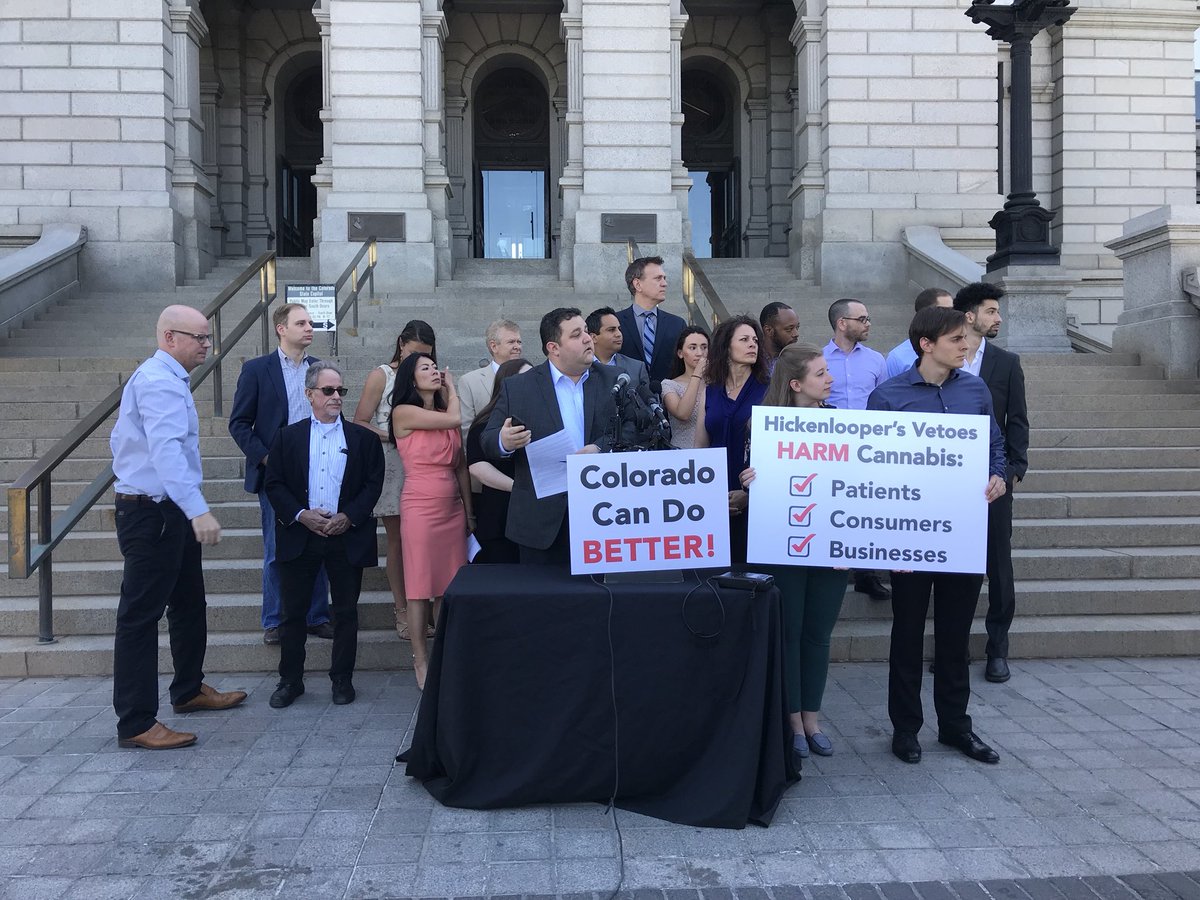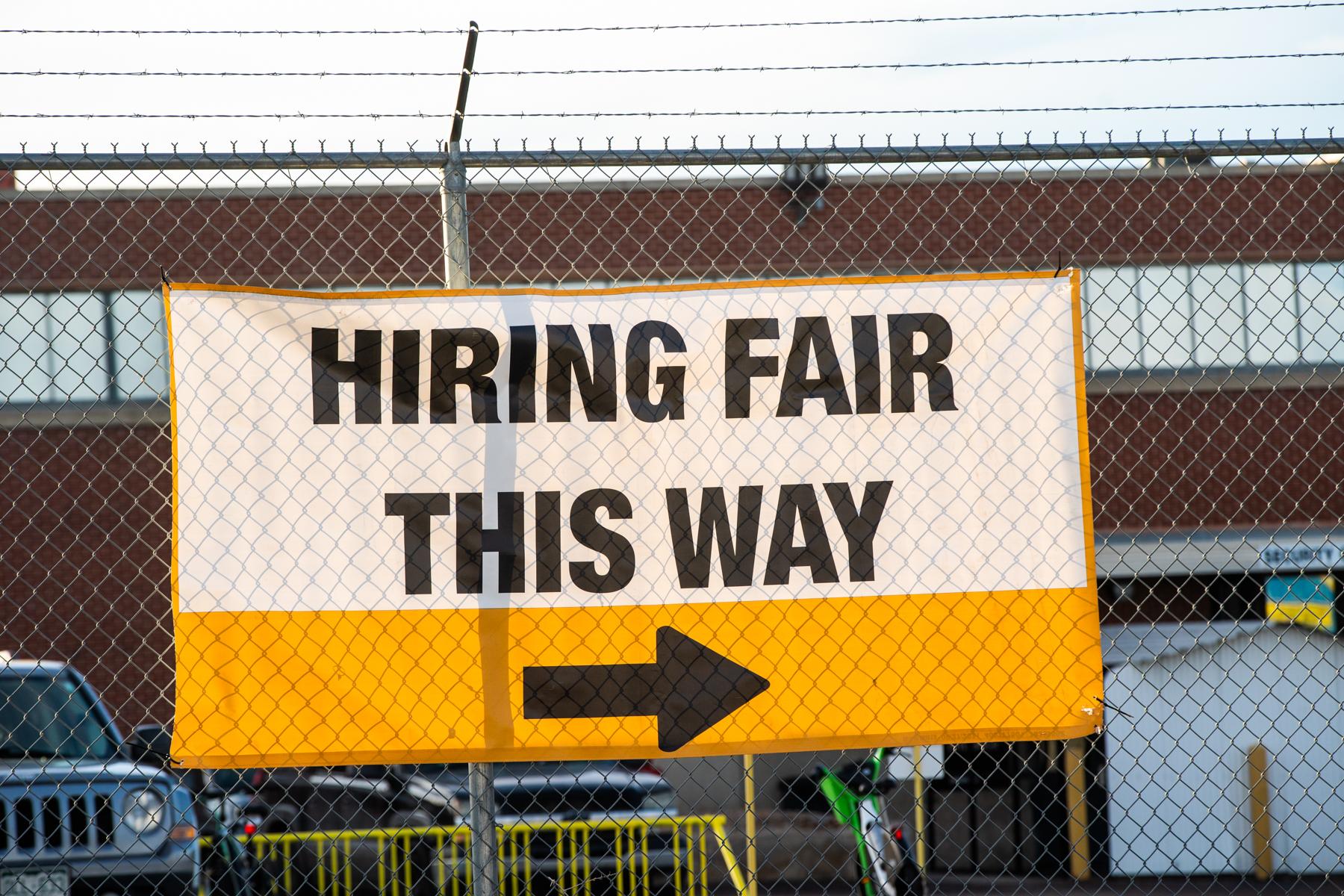

Updated 5:15 p.m. -- Gov. John Hickenlooper’s tenure in office will be marked by his careful shepherding of marijuana legalization — and by critics who slam his incremental approach.
A handful of those critics gathered on the capitol steps Thursday to condemn Hickenlooper’s veto of several marijuana-related measures from the 2018 legislative session. They called for lawmakers to explore all options to pass at least some of the legislation — including calling themselves back for a special legislative session aimed at overriding the vetoes.
While Christian Sederberg, of cannabis consulting firm Vicente Sederberg, told reporters he knew a special session would be a tall order in the midst of an election year, he said all options should be on the table.
Much of the ire was focused on the veto of HB 18-1263, which would have added autism spectrum disorder to the list of qualifying conditions under the state’s medical marijuana program.
Hickenlooper said he vetoed that bill due to the “sole concern that medical efficacy on MMJ to treat ASD has yet to be fully studied by medical professionals and scientific experts entrusted to this role at the Colorado Department of Public Health and Environment.” He then issued an executive order directing CDPHE to study the use of marijuana as a treatment for ASD over the course of the next 18 months.
“For me, it’s about helping families and their kids who have autism. It’s a complex disorder that requires families and doctors working together on the best treatment for each child. Our executive order to expedite research on the use of medical marijuana as a treatment for children with autism lays the groundwork for what we hope will be another evidence-based treatment for families in the near future,” Hickenlooper said later in a statement. “In the meantime, we have the commitment from those working closest with these kids to continue to provide the relief and support they deserve.”
Walker contended at the rally, “The governor had some worrisome solutions to our problems.” She and other advocates and parents met with Hickenlooper moments before the veto was handed down. She came away with impression the governor thought parents could either get red cards by falsely claiming their children have pain, or other qualified conditions or that parents could just supply their children with recreational marijuana.
“We have to be here for our children,” Walker said. “We cannot risk losing them. We want to work with our doctors and medical professionals, and we want to do this legally and the right way.”
Walker and others also slammed the timing of the veto at the very end of the day Tuesday, right before Hickenlooper left town Wednesday.
“We respected you, and you vetoed our bill at 5:01 p.m., when we respectfully and cordially left the Capitol,” she said. “This is a slight to our families.”
After this story published, the governor's press secretary provided some response. She said Walker misunderstood the intent of Hickenlooper's comments, which were meant to understand how kids are currently being treated. She also notes the veto came so late in the day because the governor spent the afternoon talking to all sides.
"There was no intention of slighting the families," states spokesperson Jacque Montgomery.
Kristi Kelly, head of the Marijuana Industry Group, shared similar frustrations that months-long coordinated efforts had been brushed aside by the veto pen.
“This bill is the result of 16 months of collaboration between industry stakeholders, the governor’s office, the attorney general’s office, the department of revenue and the marijuana enforcement division,” Kelly said, referring to HB 18-1011, which would have allowed investment in marijuana businesses by publicly traded companies. “The issues raised in the HB-1011 veto letter were as perplexing as those raised in the autism veto letter, and ones that the stakeholders could have easily addressed.”
The mission of the press conference seemed mainly to encourage candidates who are running for governor to take a more progressive approach to marijuana regulation than their would-be predecessor. Lawmakers who also spoke at the event — like GOP Sen. Tim Neville and Democratic Rep. Edie Hooton — vowed to take up the bills again next session, if nothing else.









